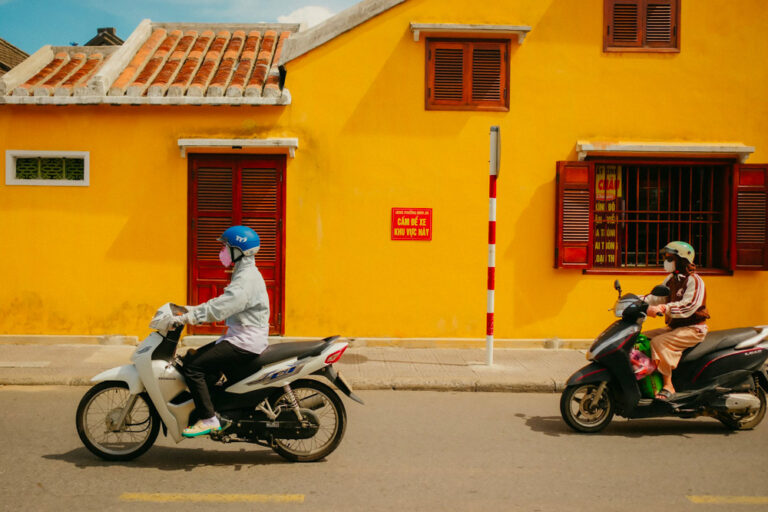16 Common Scams in Vietnam + How to Avoid Them
During my first trip to Vietnam, I stayed for a month and was captivated by the country where every landscape seems painted with a palette of vibrant colors and every street tells a story. From the terraced rice paddies in the north to the bustling streets of Hanoi.
However, as a traveler, I know it’s easy to get distracted by the inconveniences that come with tourism, especially in a place as popular as Vietnam.
That’s why I’m sharing with you the pitfalls to avoid. I’ve seen how a simple cyclo ride can end in exhausting bargaining and how an ‘all-inclusive’ tour can come with unexpected expenses. That’s not the true essence of Vietnam.
In this article, I’m sharing the 16 common scams and how I avoided them. Whether you’re a globetrotter or it’s your first foray into Southeast Asia, I want my advice to guide you away from the hassles and closer to what makes Vietnam so special.
1. Fake Taxis
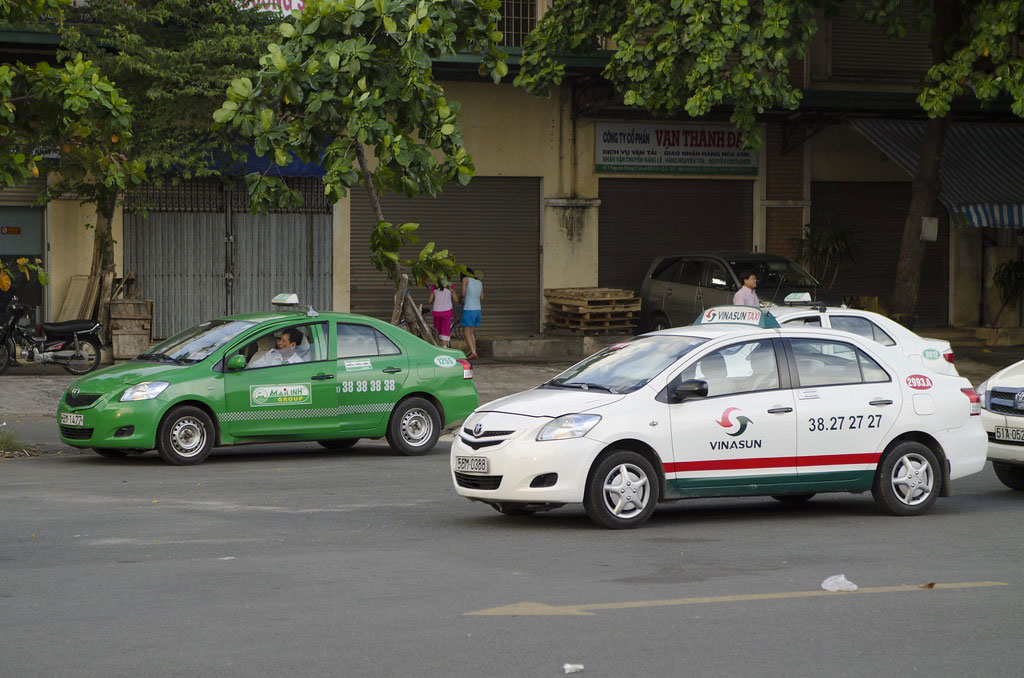
The taxi ride from the airport is often a tourist’s first encounter with the country they are visiting.
Unfortunately, it is also an opportunity for some unscrupulous taxi drivers to exploit travelers by using tampered meters or unnecessarily extended routes, thereby abnormally increasing the cost of the ride, or even being a fake taxi.
Recently, I also encountered a driver in Saigon who supposedly did not have change for the fare and wanted to round up to a higher price. Yet, it was an official taxi.
How to Avoid Fake Taxis in Vietnam:
- Recognize the signs: Real taxis often have distinctive signs, such as official company logos, clearly displayed license numbers, and visible, official meters.
- Avoid unsolicited taxis: Be wary of drivers who approach you directly and offer their services, especially at airport exits or tourist areas.
- Use official taxi points: Look for designated taxi points or ask a member of the airport or hotel staff to direct you to an official taxi service.
- Request a meter: Ensure that the taxi is equipped with a meter and refuse the ride if the driver does not want to use it or if you suspect it is rigged.
- Inquire about rates: Inform yourself in advance about standard rates to avoid paying exorbitant prices.
- Consider booking your ride in advance through a trustworthy travel agency like ‘Hoi An Transport Service.’
2. Overpriced Tours
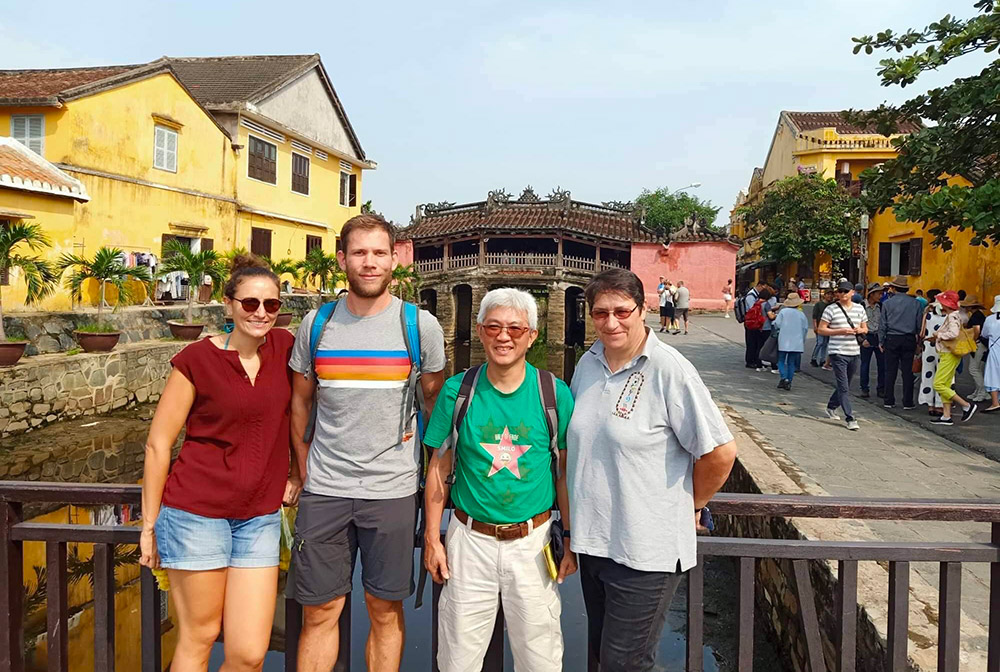
When traveling, it is tempting to book excursions and tours to discover the wonders of your destination.
However, one must be vigilant: some of these packages can be sold at excessive prices, without necessarily guaranteeing the promised experience. Tourists sometimes find themselves in disappointing situations, with unqualified guides and tours of lesser quality than advertised.
Some companies do not include entrance tickets to monuments and do not indicate this on their website. You will be surprised at the start of the guided tour.
Tips for Choosing Excursions and Avoiding Extra Costs:
- Search and compare: Take the time to compare different excursion offers and read reviews from previous customers on independent platforms.
- Request details: Before booking, ask for precise information about the itinerary, the number of participants, the qualifications of the guide, and the services included.
- Book directly: If possible, book directly with tour operators to avoid additional fees that are often added by intermediaries, such as hotels.
- Beware of exaggerated promises: Be skeptical of offers that seem too good to be true. Promising “unique” and “exclusive” experiences is a common sales tactic.
- Negotiate rates: In some cases, it is possible to negotiate the price of tours, especially if you are in a group or booking multiple activities with the same operator.
- Confirm additional fees: If you choose to go through your hotel for convenience, inquire about the commission they take and assess if the extra cost is worth it.
- Trust local agencies like Hoi An Discovery or Heaven & Earth.
My Personal Experience
The first time I visited Halong Bay in 2011, I was confronted with this scam where I had ordered an overnight cruise with an evening meal but upon arrival, I was asked for an additional fee for this meal, which was normally included in the price.
3. Currency Exchange
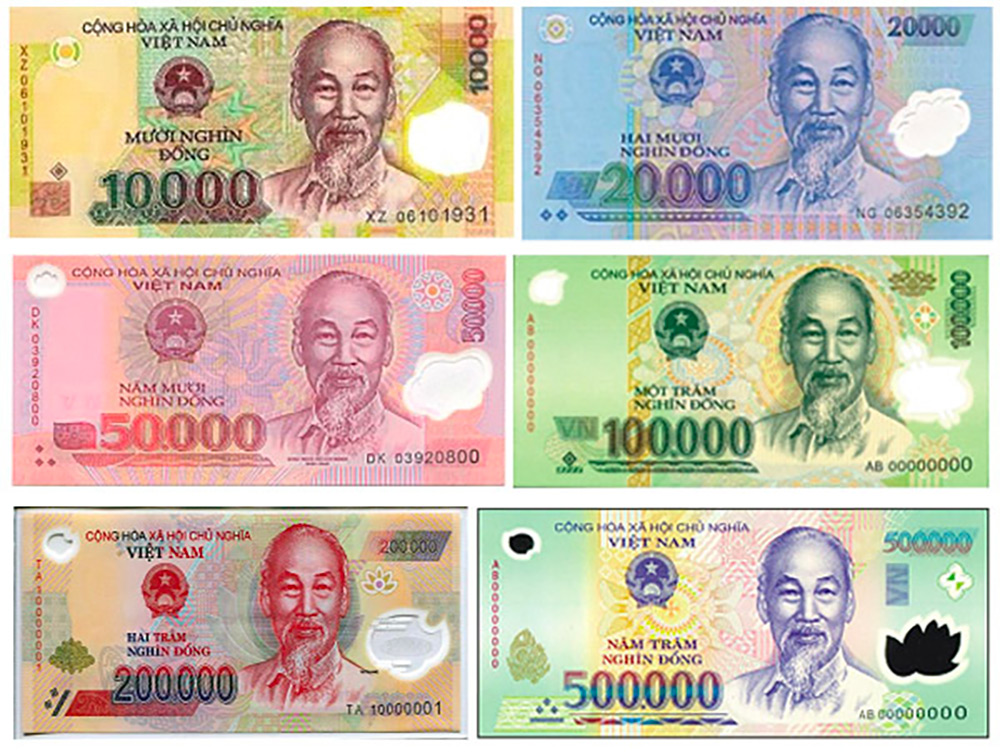
During trips abroad, especially in Vietnam where the local currency is the dong (VND), tourists can be faced with merchants who take advantage of their unfamiliarity with the currency to give less change back.
Bills of certain denominations can look very similar, increasing the risk of confusion.
Tips for currency exchange in Vietnam:
- Familiarize yourself with the currency: Before leaving, or as soon as you arrive, take the time to examine the banknotes. Note the colors, sizes, and images to easily distinguish between different denominations.
- Be particularly attentive to bills of similar colors: In Vietnam, the 50,000 VND and 200,000 VND bills have colors that can be confusing, as do the 20,000 VND and 500,000 VND bills. Take a moment to clearly distinguish them.
- Count your change: After each transaction, make it a habit to count the change given to you in front of the merchant. This can deter scam attempts and allow you to immediately correct any errors.
- Give exact change: When possible, try to give the exact amount to avoid the need for change.
- Use a separate wallet: Keep large denomination bills in a separate place to avoid accidentally confusing them with smaller denominations.
4. Inflated Prices for Tourists
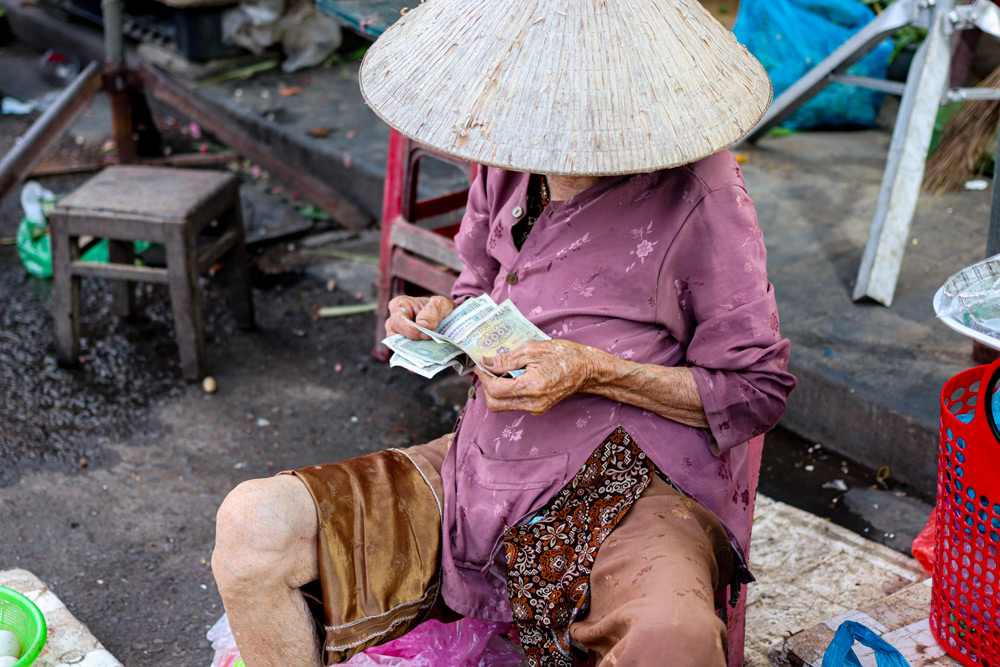
In Vietnam, as in many popular tourist destinations, it is not uncommon for international visitors to face higher prices than those charged to local residents.
This surcharge, often referred to by expatriates as the “white tax” or “tourist tax,” can affect prices in markets, souvenir shops, and even in taxi services or certain restaurants.
How to Avoid the ‘White Tax’ and Get Fair Prices:
- Learn to negotiate: Negotiation is an integral part of the market culture in Vietnam. Learn a few key phrases in Vietnamese and don’t be afraid to haggle to get a fairer price.
- Research prices: Before making purchases, find out about the usual prices for locals to better understand what you should be paying.
- Hire a local guide: A local guide can help you get fair prices and avoid traps set for tourists.
My Personal Experience
During my first trip to Vietnam, I bought a Coca-Cola on the way to the Thanh Ha pottery village in Hoi An and paid 45,000 VND ($1.80) at the time, even though the average price was 15,000 VND (60 cents).
Even as a long-time expatriate, I still generally pay more than the locals.
5. Motorbike Rental with Hidden Fees
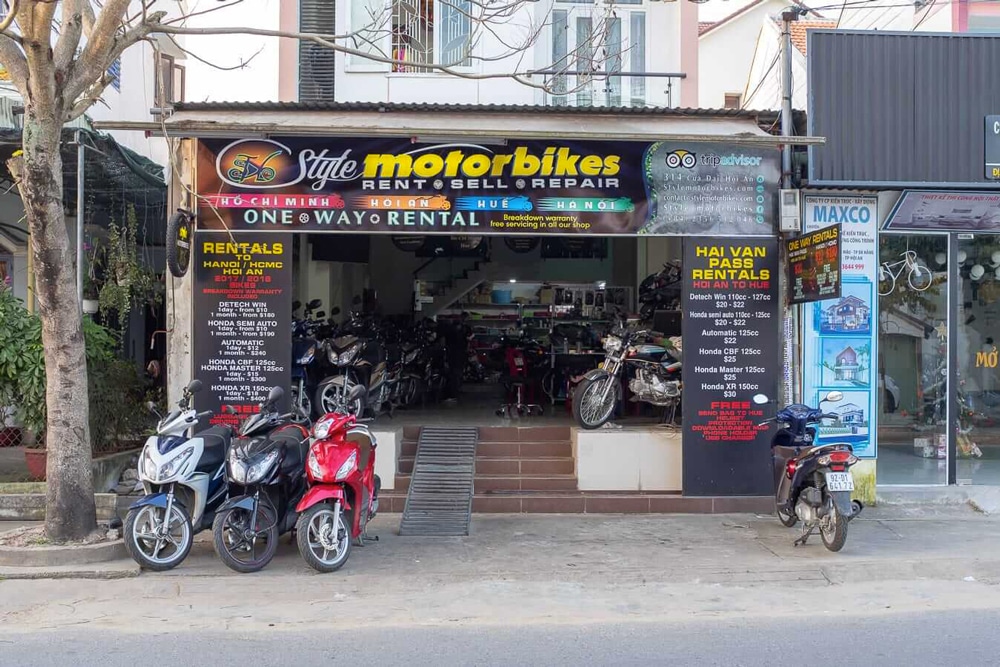
Motorbike rental is a popular activity among tourists who wish to explore Vietnam independently and authentically. However, it is important to remain vigilant as some unscrupulous rental services may try to take advantage of travelers’ naivety.
A deceptive practice involves charging excessive fees for damages that were present before the rental.
Tips for Secure Motorbike Rental in Vietnam:
- Document the condition of the motorbike: Take detailed photos or videos of the motorbike before starting the rental to record the exact condition of the vehicle.
- Examine the rental contract: Read all the clauses of the rental contract carefully before signing, paying particular attention to return conditions and potential damage fees.
- Choose reputable renters: Do research and select motorbike rental companies that have positive reviews and a good reputation, such as Style Motorbikes in Hoi An.
- Report pre-existing damages: Notify the renter of any visible damage and ensure it is documented in writing to prevent being charged for pre-existing damages.
6. The Shoe Shining Scam in Hanoi
A common scam tactic in some tourist destinations, especially Hanoi, involves shoe shiners who target travelers. A shiner might approach a tourist and, in a calculated act, drop their brushes or polish to attract attention.
Taking advantage of the tourist’s surprise or confusion, they begin cleaning the shoes without having obtained consent or even discussed a price. Once the cleaning has started, or worse, finished, the shiner then demands payment, often well above the usual rates.
How to Avoid the Shoe Shining Scam in Hanoi:
- Firm refusal: Be firm and refuse any unsolicited service, especially if no prior discussion about the cost has occurred. It is important to set clear boundaries from the start.
- Immediate intervention: If a shiner starts tending to your shoes without your permission, interrupt them immediately. Be clear and state that you did not request or need their services.
7. Persistent Street Vendors
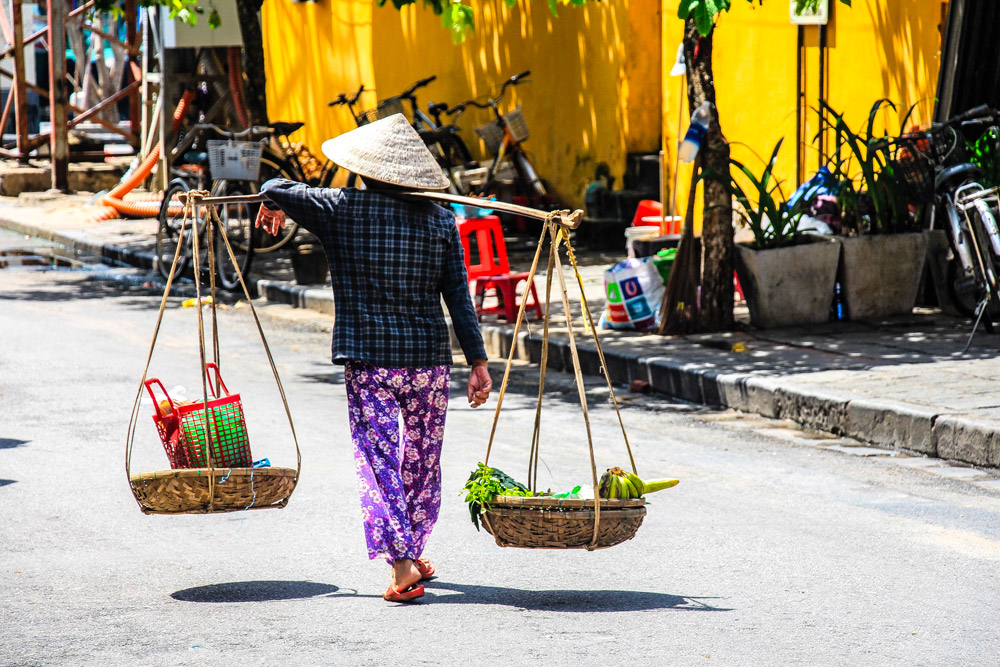
While wandering the charming streets of Vietnam, remain vigilant against street vendors who use clever sales tactics. These vendors are known for their persuasion, often appealing to guilt or exerting psychological pressure to encourage you to buy souvenirs at significantly inflated prices.
A common scheme in Hoi An involves vendors unexpectedly placing their basket on your shoulders, creating a picturesque scene for a photo.
This may seem harmless and culturally enriching, but be warned: once the photo is taken, they will demand payment for the “service” provided. What starts as a seemingly friendly interaction can quickly turn into an uncomfortable situation where money is demanded.
Tips for Handling Street Vendors in Hoi An:
- Respectful firmness: Learn to say no in a polite but firm manner. A simple “No, thank you” or “I am not interested” can often suffice.
- Know the prices: Inform yourself about the standard prices of local items to avoid paying more than usual.
- Prevent traps: Be aware of common methods used by vendors to lure you into an unwanted purchase.
- No photos without consent: Avoid being photographed with objects or in situations that could lead to a demand for payment.
8. Invalid Transport Tickets
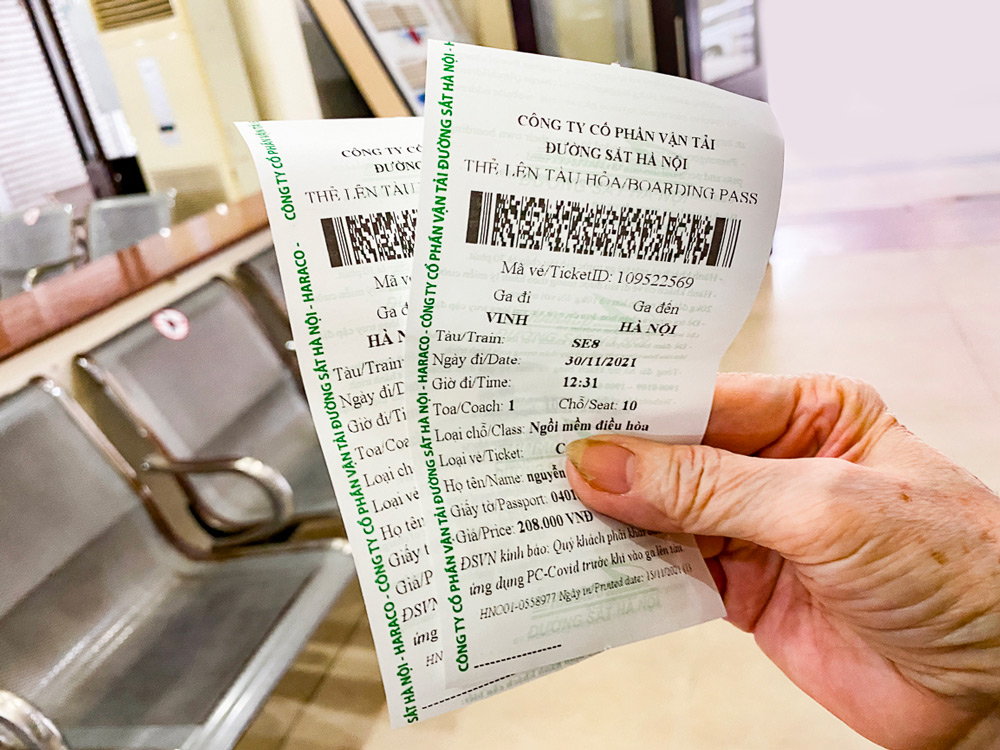
One of the most frustrating scams for travelers in Vietnam is the purchase of invalid transport tickets. Scammers often target tourists by selling bus, train, or boat tickets that are unfortunately either counterfeit or for services that no longer exist.
Furthermore, some scammers go as far as creating professional websites and brochures for completely fictitious transport companies, thus trapping travelers in bookings that seem genuine.
Tips for Purchasing Transport Tickets in Vietnam
- Secure purchases: Always prefer buying your tickets directly at official counters or through official websites and mobile apps of recognized transport companies like 12goasia or Baolau (two references for ticket purchases).
- Advanced research: Before making a purchase, take the time to confirm the existence and reputation of the transport company. A quick online search can often reveal reviews and feedback from other travelers.
- Caution in public places: Be particularly vigilant if someone approaches you to sell tickets on the street, near train stations or bus terminals. These sellers are rarely authorized representatives.
9. Counterfeit Products
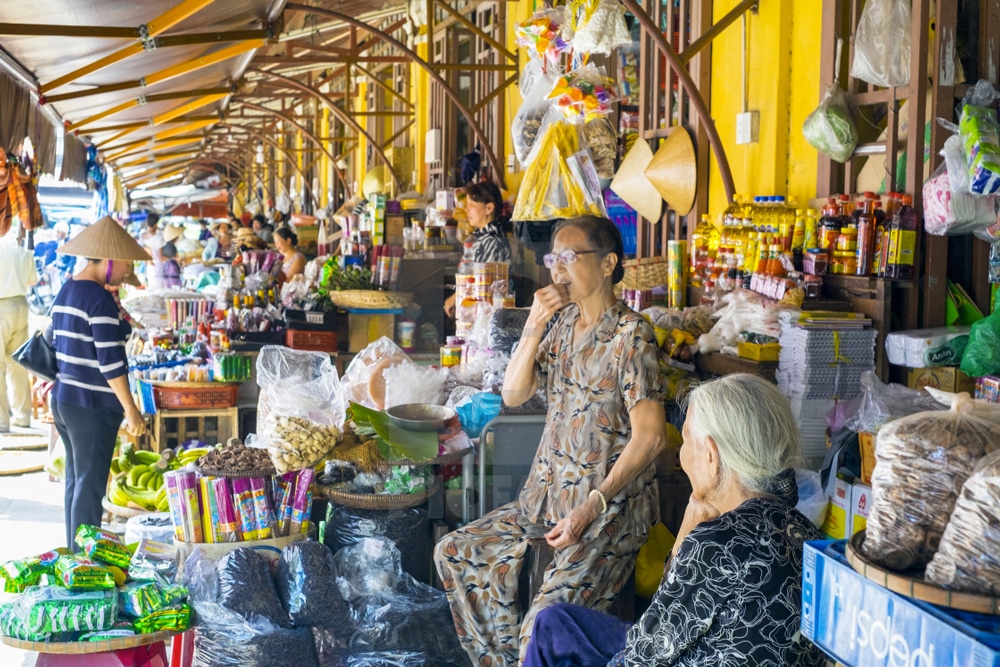
Throughout Vietnam, tourist markets frequently abound with counterfeits, imitating products from luxury and mainstream brands. These imitations, often convincing at first glance, mimic prestigious names like Chanel, Louis Vuitton, or Apple, etc…
However, they generally do not hold up in terms of quality and are offered at ridiculously low prices, falsely suggesting their authenticity.
While some counterfeits are easily detectable, such as Apple flip-flops or earrings (yes, Apple has never made either flip-flops or earrings), others are more difficult, especially products like phones and Eastpak backpacks.
Learn the Signs of Counterfeiting
- Material quality: Counterfeits are often made with lower quality materials. Inspect the quality of the leather, fabric, stitching, and finishes.
- Spelling and logo errors: Check the spelling on labels and logos. Subtle errors are common indicators of counterfeiting.
- Price: Be skeptical of very low prices for items that are normally expensive. If the price seems too good to be true, it’s probably a counterfeit.
My Personal Experience
A few years ago, I wanted to buy an iPhone 10, but the seller had replaced the inside of the phone with components from an iPhone 6, while charging the price and maintaining the design of an iPhone 10. It’s well done, and if you don’t know much, it’s easy to get scammed.
10. Cyclo Scams in Vietnam
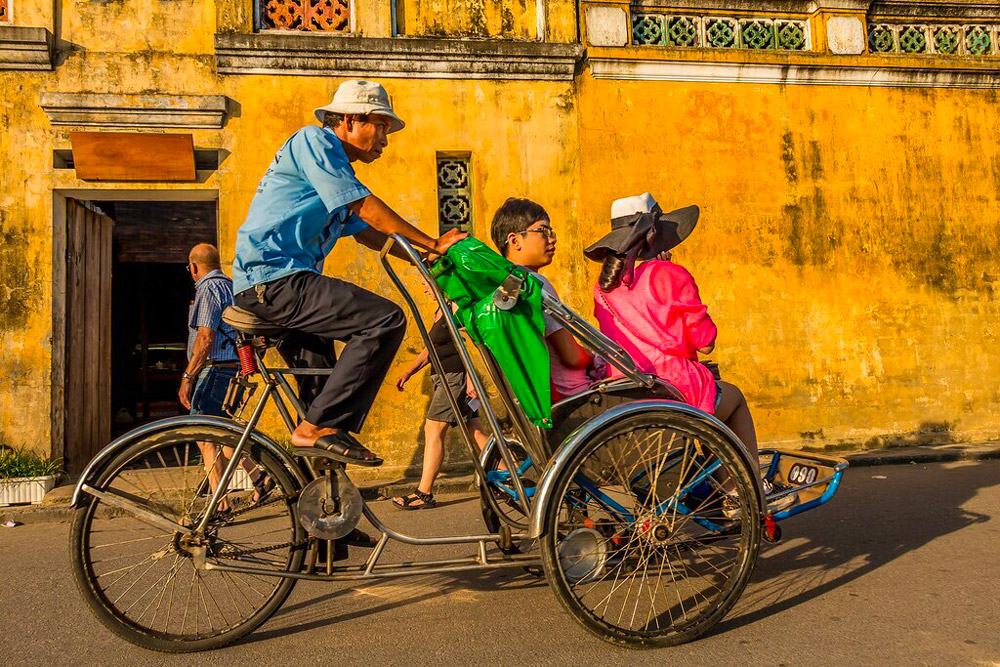
Vietnam is full of cyclos, those picturesque and emblematic tricycles, which offer a playful and relaxed way to navigate through the bustling cities. The charm of being driven through an urban landscape, without the stress of zipping motorbikes, is undeniable.
Everywhere, cyclo drivers await you, ready to turn your journey into a small local adventure. After agreeing on a price, you are set for an unconventional ride to the destination of your choice.
However, this experience can sometimes take an unexpected turn. Some cyclo drivers may deviate from the agreed route and demand an exorbitant fare for the return. Moreover, during planned tourist excursions, hidden waiting fees, which can reach up to 500,000 VND (about 25 €) per hour, may be charged by the driver, significantly increasing your bill.
Tips for a Peaceful Cyclo Experience in Vietnam
To fully enjoy your cyclo ride in Vietnam and avoid these mishaps, here are some tips:
- Discuss and agree on the price in advance: Before getting into a cyclo, make sure you have a clear agreement on the fare, including any possible waiting charges.
- Determine your route: Know your destination and planned route. Use a map or navigation app to confirm you are on the right path.
- Be aware of market rates: Inform yourself about the usual rates for cyclo rides to negotiate a fair price.
- Keep the number of a reliable taxi service handy: In case of disagreement or issues, it is useful to have an alternative mode of transportation.
11. Overpriced SIM Cards
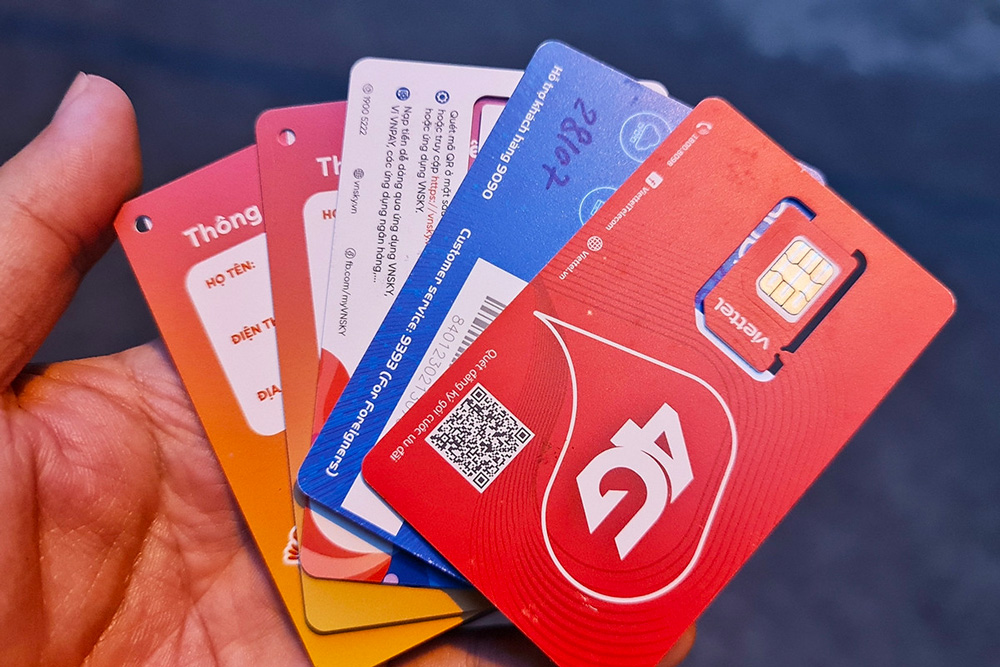
In Vietnam, travelers often need access to local communication services, and purchasing a local SIM card is a common solution.
However, some unscrupulous sellers may try to take advantage of tourists’ urgency and lack of knowledge by offering SIM cards at higher prices than normal and touting benefits or network coverage that do not exist. This even happens in airport shops.
There is also the issue of selling top-ups at double the price.
How to Buy a SIM Card in Vietnam
- Do your homework: Before leaving, research the mobile operators in the country and compare standard rates for SIM cards and data plans. Traveler forums, online guides, and consumer reviews are good sources of information.
- Prefer official sources: To avoid any issues, purchase a SIM card from official operator stores or authorized distributors. These outlets not only offer genuine products but also reliable customer support.
- Beware of dubious offers: Stay vigilant against street vendors or overly insistent individuals who cannot present official documentation. Their lack of professionalism and authentication often signals an unreliable offer.
12. Excessive Parking Fees
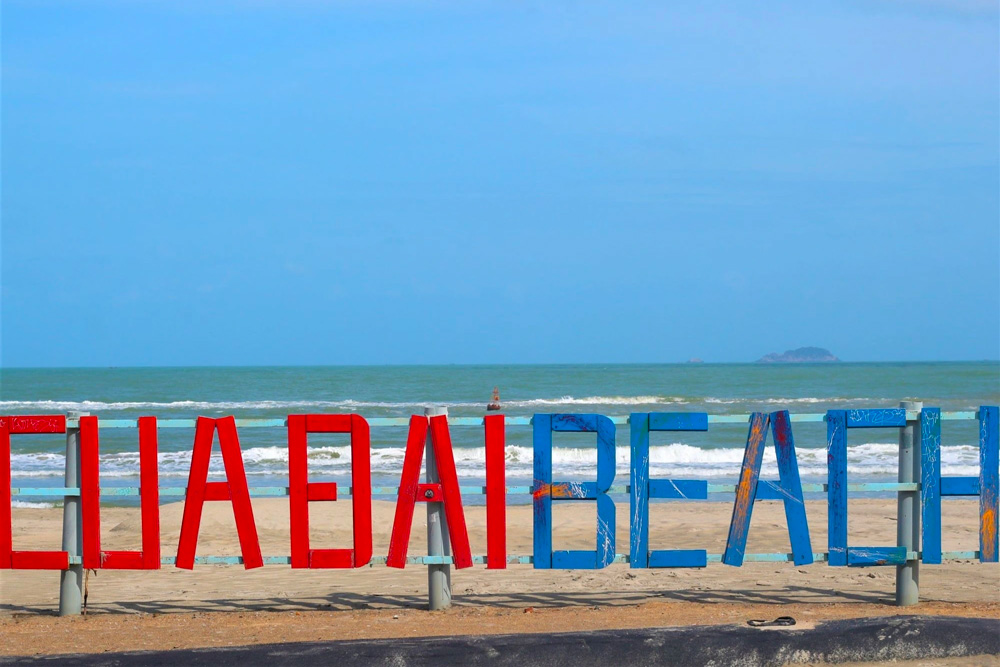
Traveling in Vietnam by motorcycle offers unparalleled freedom, but beware of a common scam near tourist attractions. Unscrupulous individuals might offer to ‘watch’ your vehicle, then demand up to 50,000 VND (2 €) for its return-about ten times the normal price.
To avoid falling into this trap, always inquire about parking fees before accepting an offer. The usual rate to park your motorcycle should not exceed 5,000 VND (0.20 €) during the day and 10,000 VND (0.40 €) in the evening.
In Hoi An, you will encounter this scam at the parking lots of Cua Dai and An Bang beaches. For the past three years, the city has regulated parking around the old town and prices are displayed, which has reduced this scam in Hoi An.
Tips for Avoiding Parking Scams in Vietnam
- Look for official parking areas: Prefer monitored and official parking lots. They offer a fixed rate and a receipt, reducing the risk of overcharging.
- Confirm the price before parking: Before leaving your motorcycle, confirm the cost and conditions with the person in charge of the parking.
- Avoid parking in isolated areas: Isolated or unmonitored areas are often the scene of scams. Prefer places frequented by other bikers.
- Be cautious with unsolicited offers: Be wary if someone approaches you to offer a parking service.
- Be firm: If you are asked for an excessive amount upon return, remain calm but firm, reminding them of the originally agreed price.
13. Restaurant Scams
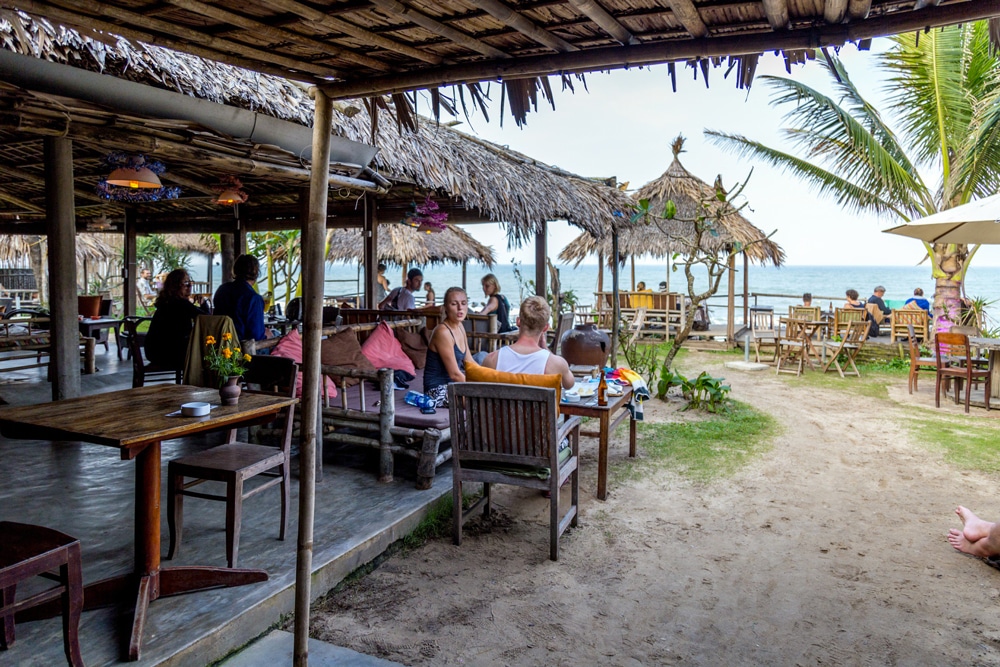
When traveling in Vietnam, especially in tourist areas, one might encounter a common scam in some restaurants: the presentation of menus without displayed prices. Tourists, charmed by the atmosphere or guided by recommendations, may order without first asking the prices.
This oversight can lead to an unpleasant experience when they find that the bill is excessively high. In the absence of written prices, staff can inflate prices at their discretion, taking advantage of the language barrier and tourists’ unfamiliarity with the usual rates.
Another scam involves having two types of menus: one in English with prices in dollars for tourists, and another in Vietnamese with prices in dong, which are much more economical.
Practical Tips to Avoid Restaurant Scams
- Ask for prices upfront: Before ordering, do not hesitate to ask how much the dishes cost. This can not only prevent an unpleasant surprise but also highlight restaurants that practice unfair pricing.
- Choose restaurants with priced menus: Opt for establishments that clearly display prices on their menu. This often indicates greater transparency and reliability.
- Check reviews: Before choosing a restaurant, look at online reviews. Comments from previous customers can reveal questionable practices such as dual pricing.
- Be firm about the price: If the price on the bill does not match the menu price, insist on paying the initial amount. If the discussion does not resolve the issue, do not hesitate to mention that you are prepared to contact local authorities.
My Personal Experience
During dinners in Hoi An, my Vietnamese wife and I encountered this practice three times. The staff, mistaking my wife for a tour guide, presented me with a menu in dollars where the prices were twice as high as those in dong shown on the Vietnamese menu given to my wife. True champions.
14. “Friendship” Scams
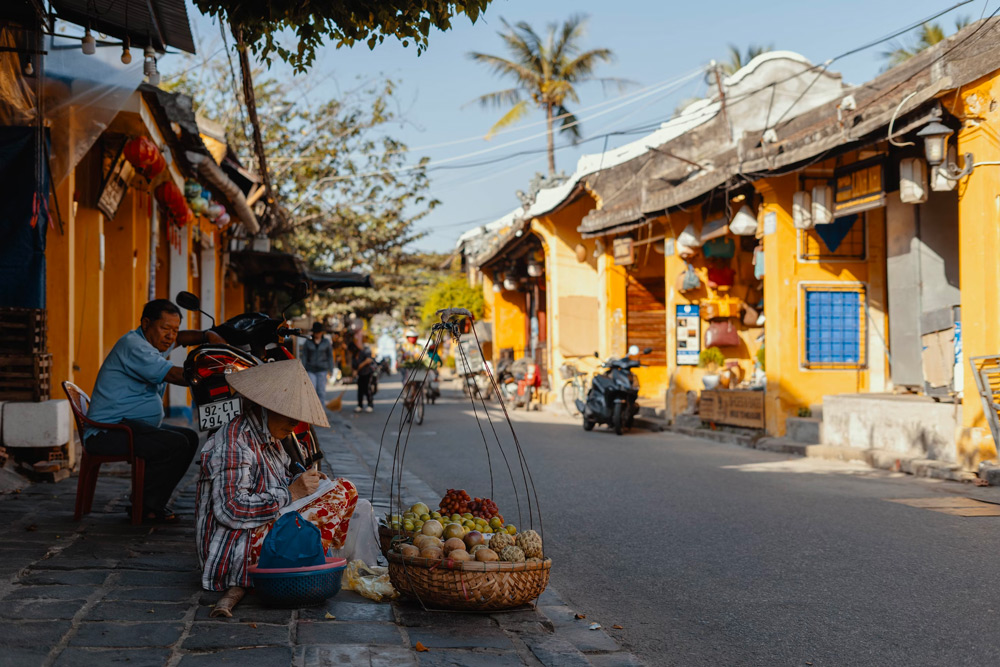
It is common when traveling in popular destinations to meet locals who appear extremely friendly and sociable. They may strike up a conversation and quickly forge a connection with tourists. Under the guise of kindness, they often offer to serve as guides to discover unique places.
However, their true intention is to lead travelers to specific businesses-souvenir shops, restaurants, or art galleries-where they earn a commission on the sales or consumption made by the trapped tourists.
How to Avoid Falling into the Friendship Trap
- Caution with new acquaintances: If someone you’ve just met spontaneously offers to show you places or businesses, be vigilant. It is possible that this person has hidden financial motivations.
- Planning: Before going out, determine where you want to eat and shop. Having a plan helps you stay focused on your choices and resist attempts at persuasion.
- Trust your instincts: If an offer seems too good to be true or if your interlocutor insists heavily, it is likely that there are personal interests behind it.
15. Additional Fees for Luggage on Buses
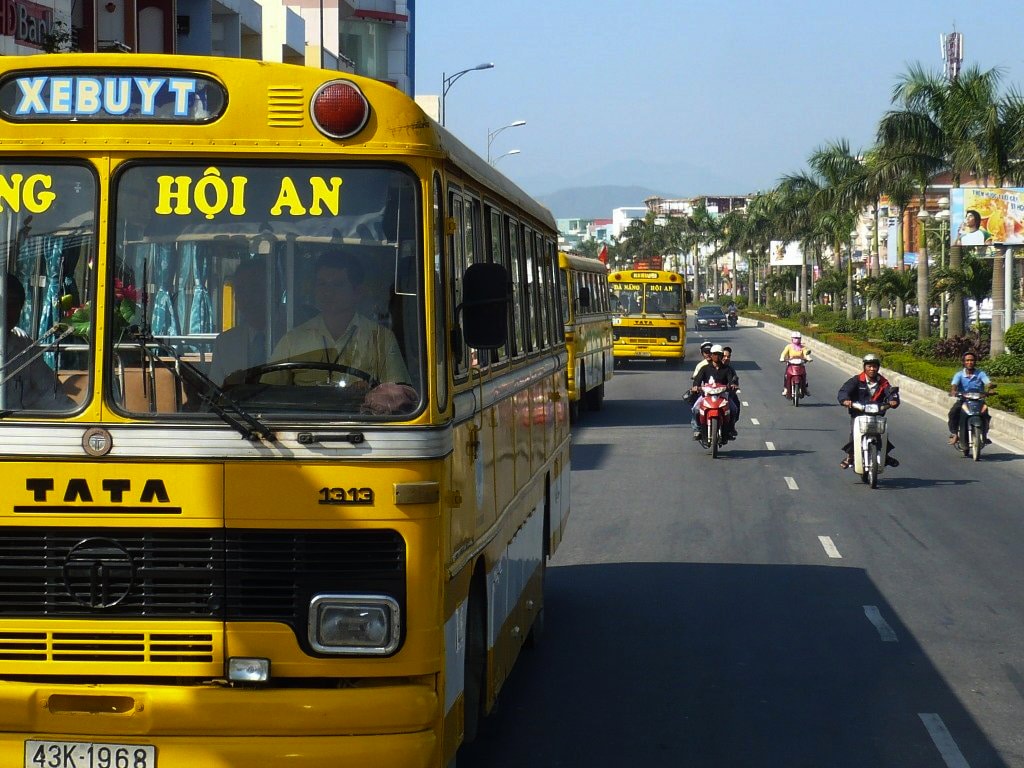
Taking the bus in Vietnam is a cost-effective option for budget-conscious adventurers, but beware of opportunistic drivers who might try to inflate the price of the journey by claiming excess luggage fees.
Unless you plan to transport bulky items like a motorcycle, these additional charges are often unfounded. Most bus services include standard transportation of your backpack in the ticket cost.
Therefore, it is crucial to check and confirm the baggage policy of the company before purchasing your ticket. This precaution will protect you from unexpected surcharges and ensure a peaceful journey that fits your budget.
Tips for Avoiding Additional Bus Fees
- Stay informed: Read reviews and experiences of other travelers online. They can often provide information about the practices of certain bus companies.
- Use reputable services: Choose well-established and reputable bus companies. They are generally more transparent about their policies and less prone to dubious practices.
- Remain calm but firm: If you are asked to pay more at boarding, refuse to pay unjustified additional fees.
16. Gas Station Scams

A common scam at gas stations involves not resetting the fuel pump meter between customers. If the previous customer paid 50,000 VND, the attendant might begin filling your tank without resetting the meter.
Thus, if you also add 50,000 VND worth of fuel, the meter will show 100,000 VND, and you risk paying double what you actually consumed.
And if there are three or four customers in front of you, imagine what you will end up paying. My cousin got scammed and paid 200,000 VND instead of 50,000 VND, while the maximum cost to fill his tank is normally 100,000 VND.
Tips for Avoiding Gas Station Scams
- Always check that the meter is reset before the attendant begins to serve you fuel.
- Avoid the gas station on the way to An Bang Beach (Hai Ba Trung Street) at all costs. It is notorious for scamming tourists.
Pickpocketing
Pickpocketing is particularly prevalent in Vietnamese metropolises where petty crime is widespread. To avoid inconvenience right from your descent at a bustling airport, it is imperative to remain vigilant and always keep an eye on the location of your valuables.
Vietnam dazzles the senses, which can easily divert your attention. However, it is crucial not to get distracted, especially when becoming acquainted with a new environment.
Friends of mine have encountered thieves during their stay in Vietnam, particularly in Saigon. Motorcycle thieves are particularly skilled: they target inattentive tourists, those who venture too close to the edge of the sidewalk with their belongings visible, then swoop in and snatch their personal items in a flash.
Whether you are using your phone to navigate, pulling out your wallet to pay for a drink, or simply walking around with your bag slung over your shoulder, caution is advised.
Some tips to prevent pickpocketing in Vietnam:
- Stay aware of your surroundings: Keep an eye on the people around you.
- Use difficult-to-open bags: Opt for bags with secure closures and wear them in front of you or cross-body.
- Limit exposure of your valuables: Do not openly display your electronic devices or money and put them away immediately after use.
- Avoid streets too close to fast lanes: Stay at a safe distance from the edge of the sidewalk to reduce the risk of theft by motorcyclists.
- Be discreet with your phone: If you need to use it for navigation, do so discreetly and preferably inside a café or a safe space.
Conclusion
To be clear, you are more likely to get scammed in Paris or New York than in Vietnam. The amounts involved are relatively small, a few euros here and there.
But it is important not to overlook the minor scams that can spoil your trip to Vietnam. Petty crime like pickpocketing is low but present.
In the end, I hope my tips will help you avoid falling victim to any of these scams. If you know of others, please comment them below.Partager




